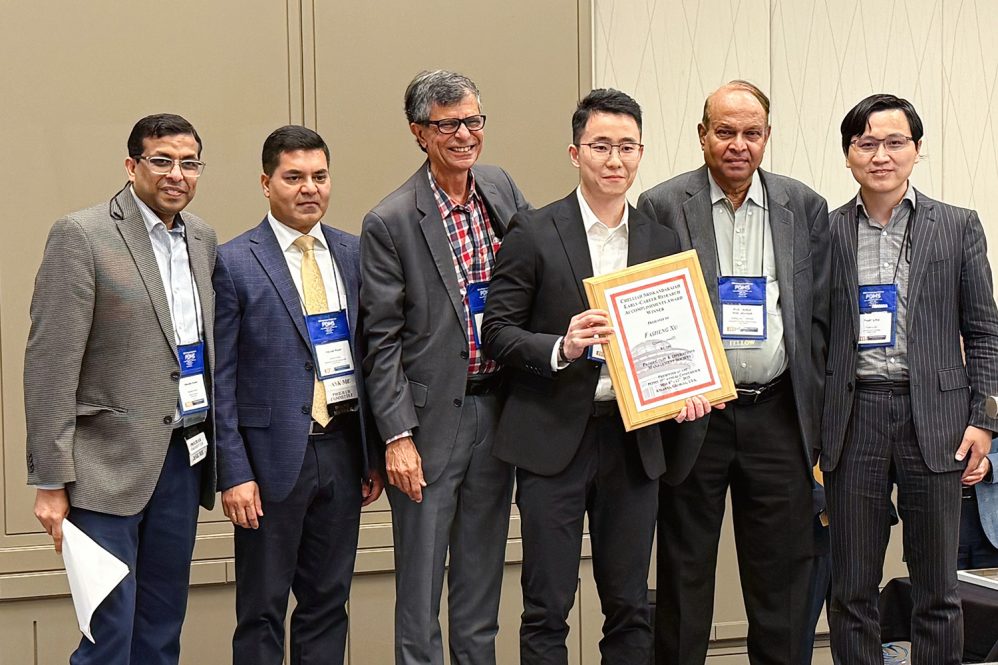Fasheng Xu, a professor of Operations and Information Management (OPIM), has been awarded the 2025 Chelliah Sriskandarajah Early Career Research Accomplishments Award, a global honor bestowed on just one scholar annually.
The award, presented at the Production & Operations Management Society’s (POMS) annual conference in Atlanta last weekend, recognizes exceptional research contributions by a scholar who completed his or her doctorate in the last six years.
“Since joining UConn two years ago, Fasheng has made outstanding contributions to our research and teaching,’’ said professor Cuihong Li, head of the OPIM department. “He has enhanced our expertise in supply chain finance, risk management, and the integration of emerging technologies, particularly blockchain and Generative AI, into supply-chain management.”
“He exemplifies the qualities of a forward-thinking scholar, constantly exploring the evolving landscape of business and technology, analyzing their impact on supply chains and their intersections with other business functions, and bringing the latest insights into the classroom,’’ she said.
The Sriskandarajah award was created to recognize and reward exceptional faculty who have made significant accomplishments to the field and broadened, extended or altered the way production and operations management is conceptualized, practiced, and viewed.
Most recently, Xu’s research has focused on Generative AI, addressing questions about AI governance, market dynamics, and organizational transformation, including how companies can optimally integrate human and GenAI capabilities to enhance decision-making and drive innovation.
Xu said GenAI intrigues him. “I think GenAI will be more disruptive than other recent emerging technologies I’ve studied, and it’s a fascinating area that opens up new frontiers for both research and teaching,’’ he said.
Regardless of topic, Xu focuses his research to join theoretical rigor with actionable insights for the business community. One example is a series of articles he co-authored recently exploring the impact of blockchain technology adoption in various supply chain settings, identifying both the benefits and challenges. He typically has about 10 research projects underway at all times.
Xu also recently applied his knowledge to create a new UConn MBA course on supply chain finance, equipping students with analytical tools and practical knowledge to address real-world challenges. Creating a course from scratch was demanding, but something he enjoyed. Recently, he also led two faculty development workshops on the use of Generative AI for enhancing productivity in teaching and research.
His work has appeared in leading journals, including three papers each in Management Science and Manufacturing & Service Operations Management. Xu has also reviewed more than 130 manuscripts for leading journals.
Xu, who is based at the Stamford campus, said he was drawn to UConn because of the faculty’s research productivity, and that he has been able to collaborate with many of his colleagues here on new projects. He joined the faculty after working as an assistant professor of supply chain management at Syracuse University, where he was an award-winning faculty member. Xu earned his Ph.D. in Operations Management at Olin Business School at Washington University in St. Louis.
Xu credited Li’s encouragement and unwavering support as a factor in his receipt of the award.
“I likely wouldn’t have applied if it weren’t for Professor Li, who strongly believed in the quality and impact of my work,” he said. “I’m truly grateful for her mentorship and advocacy. Having my research recognized in this way has been a meaningful and motivating boost.”



